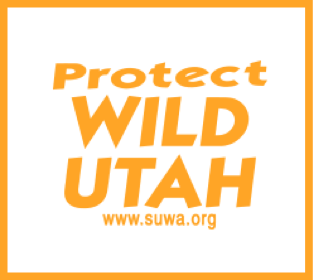Wilderness at the Edge
FOREWORD
"In Wildness is the preservation of the world." When Henry David Thoreau expressed this belief in 1848, he could not have imagined how true his words would ring in the world of the 1990s. Today, faced with probable global warming, ozone depletion, acidic lakes, extinctions, desertification, and deforestation, we realize that our future quality of life--if not life itself--will in large part depend on the treatment we afford our natural environment.A short time ago, I heard a moving story about the leader of one of the nation's largest environmental organizations. His daughter had been cured of a life-threatening illness more than a decade ago by a nearly miraculous drug found in a plant which grew only on the island of Madagascar. His daughter is now healthy, but the plant, like so many others, is now extinct.
Wilderness and the life dependent on it are fragile entities. They can be destroyed in a matter of years, if not days. Legislative protection is the surest way to maintain a wilderness reserve on our hungry and crowded planet. When wilderness is protected, watershed is protected. Biological diversity is protected. Game is protected. The proper functioning of a natural system is protected. Our quality of life is protected.
The scientific arguments for wilderness seem irrefutable. But will designation of large areas of wilderness in Utah, as I have proposed in H.R. 1500, harm the economy of the region? I honestly don't think it will. Everything I have read and researched indicates that few developable resources will be lost, while increased interest in the region will bring more visitors, money, and growth. But perhaps even more importantly, the quality of life that has drawn us to Utah will remain unimpaired.
I have had the privilege over the last few months of spending time with the residents of southern Utah who will be most affected by the passage of the wilderness bill I have proposed. Although the reception was always cordial, it was very clear that a great rift of opinion exists over Utah wilderness. I sometimes asked these residents if they would be willing to live in a place which was completely developed and exploited, without the quiet corners of natural beauty and solitude which make Utah so unique. The answer was invariably negative, so the real question becomes not whether to preserve significant portions of Utah's wilderness, but, simply, how much. I have proposed preserving over 5 million acres of wilderness in Utah in H.R. 1500. I admit that is a impressive number, but one of the most impressive areas on the planet deserves nothing less.
If we do not deliberately protect our remaining wilderness in Utah, I fear it will eventually disappear. It will not vanish through beneficial development, but will instead be lost through gradual attrition for no good reason at all. Having been born in southern Utah and having spent my youth in its unmatchable canyons and forests, I want to ensure that same opportunity will be available for future generations. Fifty years ago, Utah had 18 million acres of wilderness land. Two-thirds of that is gone today and what remains is seriously at risk.
To paraphrase John Muir, anyone can destroy a wilderness. It has no natural defense. It cannot fight or run away. But only God can create a wilderness--and only wise government and wise laws can preserve it. What we now elect to save in Utah over the next few years of discussion will always remain. What we neglect to protect can never be recovered. This is a decision with lasting consequences for the future. I hope we will choose wisely and I look forward to participating in this exciting and essential process during the critical years to come.
Wayne Owens
U.S. House of Representatives
Second District, Utah

